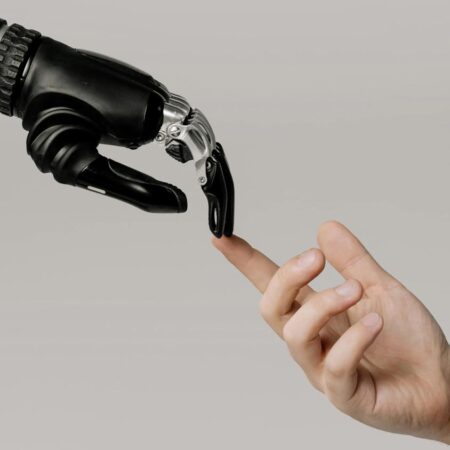Artificial Intelligence (AI) has invaded our daily lives at breakneck speed. From the chatbots that serve us online to the virtual assistants that organize our schedules, AI is transforming the way we interact with the world. But is this technological revolution meeting consumer expectations?
A recent Lippincott study reveals a scenario that invites reflection: less than a third of consumers believe that AI experiences live up to what they expected, and 40% view this technology with skepticism. But why this disappointment? Is AI failing on its promise to improve our lives?
Inflated Expectations vs. Raw Reality
The blame may be, in part, on the propaganda surrounding AI itself. In recent years, we have seen a deluge of news and promises about the almost magical capabilities of AI. Self-driving cars, instant medical diagnoses, omniscient personal assistants… The future seemed to be just around the corner.
However, the reality is that AI is still in its infancy, and it stumbles frequently. Its applications, although promising, are still limited, imprecise and, at times, even frustrating.
- Chatbots that don't understand: Who has never come across a chatbot that looks like it came out of an 80s comedy sketch, unable to understand the nuances of human language and providing unreasonable answers?
- Biased algorithms: Recommendation algorithms, far from being neutral, can perpetuate stereotypes and biases that exist in society, discriminating against groups and limiting opportunities.
- Virtual assistants with “merchant ears”: Despite advances, virtual assistants like Siri and Alexa still have difficulty understanding accents, dealing with background noise and interpreting complex commands.

The Need for Humane and Trustworthy AI
To gain consumer trust, AI needs to be more than just smart: it needs to be human. Companies developing AI solutions must take users’ needs, expectations, and fears into consideration.
- Transparency above all: Consumers need to understand how AI works, how their data is used, and what its limitations are. The AI “black box” generates distrust and creates space for fear of the unknown.
- Control in the user's hands: Excessive customization, without control on the user's part, can generate discomfort and an invasion of privacy. Nobody wants to feel manipulated by a machine.
- Intuitive, seamless experiences: AI should simplify users’ lives, not complicate them. Confusing interfaces, complex processes and frequent errors create frustration and lead to technology abandonment.
AI and the Future: A Way Forward
Despite the challenges, AI has undeniable potential to improve our lives. Imagine a future where AI helps us:
- Make more informed decisions, based on data and predictive analysis.
- Access personalized healthcare, with more accurate diagnoses and more effective treatments.
- Automate repetitive tasks, freeing up time for more creative and rewarding activities.
- Connecting with the world in innovative ways, breaking geographical and cultural barriers.
But for this future to become a reality, companies and AI developers need to work together to create solutions that are not only smart, but also ethical, trustworthy and human-centric.
And you, how do you feel about AI? Have you ever had an experience that left you disappointed? Share your opinion in the comments!




![[Vídeo] Coca-Cola Aposta em Anúncio de Natal com IA e Recebe Críticas Negativas](https://solangerainha.com/wp-content/uploads/2024/11/pexels-polina-tankilevitch-4109084-copy-450x450.webp)




No Comment! Be the first one.